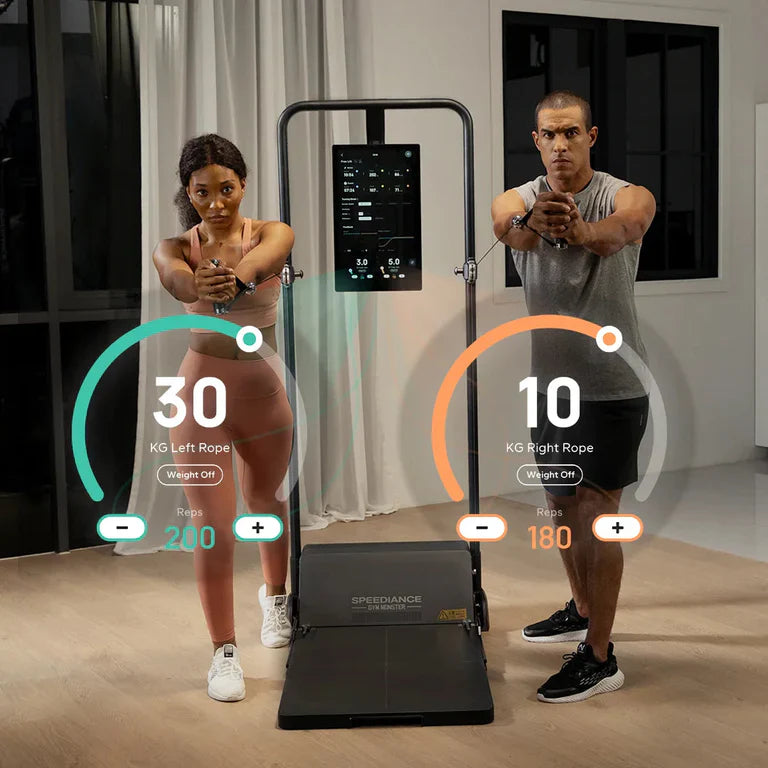

The Fine Line Between Pushing Limits and Overtraining
We've all been there. You're putting in the hours at the gym, training harder than ever, but your numbers are stuck or even going down. That frustrating plateau where your usual weights feel like they’re bolted to the floor isn't just a 'bad week'. It could be your body sending out an SOS. This is the reality of overtraining syndrome (OTS), a state where you've pushed so hard for so long without proper rest that your body simply can't recover. Learning to spot the early whispers of overtraining, before they become a roar, is the key to building a truly sustainable and successful fitness journey.
Common Signs of Overtraining Syndrome
Overtraining is a slow burn, not a sudden explosion. Your body gives you plenty of clues if you pay attention.
That Bone-Deep Tiredness You Can't Shake
Forget that satisfying, 'good-sore' feeling. This is a deep, unshakable exhaustion that a full night's sleep doesn't fix. Your motivation to even get to the gym might disappear, replaced by a feeling of wading through mud just to get through your warm-up.
Your Performance Starts to Decline
It’s that baffling moment when your warm-up feels like your main set. Your endurance seems to have vanished overnight, your coordination feels off, and you're struggling to catch your breath between sets. When your workouts feel more like a punishment than a challenge, something is wrong.
Your Resting Heart Rate Is Higher Than Usual
A simple pulse check first thing in the morning can tell you a lot. If your resting heart rate is consistently higher than your normal baseline, it's a sign your entire system is under stress, working overtime even when you're not.
Your Sleep Is Disrupted
This is one of the most frustrating parts of overtraining. You feel completely wiped out, yet quality sleep is impossible. You might struggle to drift off, find yourself waking up constantly, or sleep for eight hours and still feel like you've been hit by a bus.
Mood Swings and Irritability
Overtraining throws your hormones out of whack, which directly impacts your mood. The gym session that used to be your best stress reliever might now be the source of your anxiety. If you find your fuse is suddenly shorter or you're feeling unusually stressed and flat, your training could be the cause.
Nagging Aches, Pains, and Injuries
Normal muscle soreness is one thing; aches that never quite go away are another. If your joints are constantly stiff or you're picking up one minor, nagging injury after another, it’s a clear sign your body’s repair crew is on strike.
What Causes Overtraining?
It’s rarely one single thing, but usually a perfect storm of these factors:
-
Too Much, Too Soon: The classic mistake of ramping up training volume or intensity faster than your body can adapt.
-
Ignoring Recovery: Treating rest days as optional, skimping on sleep, and never doing active recovery is a fast track to burnout.
-
Poor Fuelling: You can't rebuild muscle without the right materials. Not eating enough quality protein and carbs is like asking a builder to work without bricks.
-
Life Stress: A demanding job, personal worries, and poor sleep all add to your body's total stress load, leaving you more vulnerable to overtraining.
How to Prevent Overtraining and Support Your Recovery
The good news is that overtraining is completely preventable. It’s about shifting your focus from simply training harder to training smarter.
-
Treat Rest as a Non-Negotiable: Schedule at least one full rest day each week. Make active recovery, like a gentle walk, stretching, or light yoga, part of your routine. Sometimes, doing less is the most productive thing you can do.
-
Fuel for the Work Required: Prioritise your nutrition. Make sure you’re eating enough to support your training, with a sharp focus on protein for muscle repair and complex carbs for energy. Hydration is also a critical piece of the puzzle.
-
Learn to Listen to Your Body: Your body provides constant feedback. Pay attention to your energy, your mood, and how you feel. If the signs of overtraining are there, have the confidence to pull back. That's a sign of a smart athlete, not a weak one.
Using Smart Tools to Train Smarter
This is where modern fitness tech can give you a real edge. The Speediance ecosystem is built to help you manage your training load intelligently, not just blindly.
The customisable resistance of the Speediance Gym Monster 2.0 helps prevent the excessive strain that leads to overuse injuries. For cardio, the Rowing Bench 2.0 is a brilliant low-impact option that saves your joints. The Adjustable Bench allows for safe training, while accessories like the Squat Belt provide crucial core stability. You can even adjust your workout intensity on the fly with the Smart Bluetooth Ring Controller, ensuring you're always working at the right level for your body on that particular day.
Final Thoughts: Finding the Balance
Building real fitness is a long game, not a sprint. Recognising the early signs of overtraining isn't about finding excuses; it's about being smart enough to play that long game well. True strength is built during recovery, not just during the workout itself. By learning to listen to your body, fuelling it correctly, and using innovative tools to train smarter, you can avoid burnout and build a foundation for lifelong fitness.

